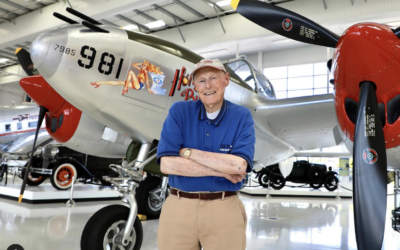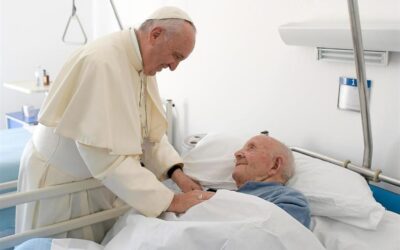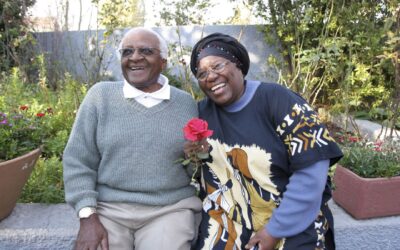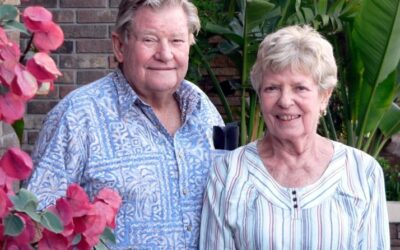My mom, Cassidy, is the soul of our family business. Sensitive and interested in everyone she meets, she’s easy to talk to and has a knack for drawing out people’s stories: a writer by nature, she sees the story in everyone. I don’t think she’s ever met someone she didn’t find interesting, and she almost always gets to know our friends that she oversees on a very personal level — she can tell you where they grew up, what they studied in school, their favorite books. And it really is her personal interest in people and sensitivity that created the model for the kind of care we try and provide.
Originally from the Midwest, my mom grew up in a small town in Missouri, and in a multi-generational home with her grandmother Katie. The “Cassidy House,” named for her great grandfather (and who she was also named after) was often a refuge to family members who had fallen on hard times.
I initially sat down with her to interview her about some of the basic questions and struggles we often see with new clients — with the idea that this interview/blog post might be helpful for others considering in-home care for a parent or loved one. But we ended up talking about so much more: the loneliness older adults often experience; what it was like for my mom growing up in a multi-generational home; different generations’ concepts of “respect”; the heartbreak and triumphs in our work caring for older adults; and why it can be so difficult for parents to accept care from a child & vice-versa.
What would you say is generally the biggest struggle for our clients when we first start working with them?
Generally, I’d say the hardest part for our clients is the sense that they’re losing their independence. Also, admitting that they need help.
What would you say is one of the biggest struggles for the families of our clients?
It’s hard to generalize… Sometimes the hardest part is having to be the one making decisions. Usually, the parent is the one who’s been making decisions throughout their lives and then when a child steps up to decide that the parent needs care, that can create a conflict.
If someone calls and is thinking of care for their parent, what do you advise?
Usually, it’s pretty obvious if the parent needs help. You don’t get a call until someone’s fallen, or they’ve started wandering. There’s already been a traumatic event where it’s become clear that the parent can no longer live safely on their own.
How does a caregiver provide support to an older adult?
A caregiver is like an extension of yourself. If you’re having trouble walking, the caregiver is like your living cane. Or if you can’t concentrate to follow a recipe, the caregiver is another set of hands and brain to help you. If your reactions have slowed down, it’s someone to drive you. It can be companionship for people.
Many older people are living alone, extremely isolated. For instance, one client I saw yesterday, who’s doing great, she said she loves being in her house, but she gets pretty lonely. She loves having her caregiver there for the few hours she comes. She’s a helper, but she’s also become a friend. This client’s house looks like a different place now because the caregiver is doing such a good job making everything sparkling. When you’re on your own, a friendly face, can make a world.
Why do you think so many people seem to get lonely as the age?
Often it’s just numbers. The older you get, the more people that you’ve known and loved have died. If you had a partner, the odds are that they died. And the way our society is, kids move away. It’s not the way it was when people stayed where they grew up and families were more interdependent. Yet, maybe that’s changing again. More kids seem to be moving in with their parents now for economic reasons.
Do you think people actually feel lonelier as they age?
I don’t know if older people actually feel lonelier, because you can be lonely at different periods throughout your life. But the normal ways people alleviate loneliness, older people can’t always do easily: go out, visit a friend, etc. You’re generally more confined by age.
Also, when your senses starting to diminish, the world can narrow. It doesn’t have to, but it can. Most people don’t admit that, I don’t think. But one of our clients actually said that to me. She’s been divorced a long time and now has Alzheimers. I think with all of the dementia diseases, not only is your brain doing things to you, but all the fear that surrounds that diagnosis makes you afraid to go out even at the beginning stages, when you’re relatively okay, because you’re afraid all the time. And you could be forgetting things or you think things are happening to you. Or if you’ve become incontinent, you’re embarrassed you might have an accident. We have one client who was having spontaneous nose-bleeds and was terrified to go out in case that might happen.
What was it like growing up with your grandmother? Did she always live with you?
Not long after I was born my parents moved from Jeff City to Sedalia with me and my older brother Ward. We moved into my mother’s family home because her father had died in 1950 (I was born in 1952); and it was the norm then that the daughter would look after the mother and/or father.
The story goes that my grandmother, Katie, was devastated when Jack McGrath (my grandfather) died in 1950. She wanted to die, too. She took to her bed and became reclusive. And then I always remember hearing that she had a lobotomy because she felt nauseous all the time! She died when I was 7 years old.
She had the two front rooms in the house. And she had a helper, Bess, who was a caregiver essentially, who stayed with her and helped my mother look after her.
There were always a lot of people in the house, an uncle who never got married. It was always a multigenerational house and I had a wonderful childhood.
I loved my grandmother. I loved Bess. My uncle E.G. would come stay and visit. I loved Roseanne (my grandmother’s cousin who lived with us). With all those people you have more relationships and get more attention. I don’t have any bad memories of my childhood.
How did you and Katie spend time together?
I would go sit in her room and read. Or they would read to me when I was little. I remember reading in her lap.
I also used to go cut the flowers from other people’s gardens to take to Katie – I didn’t realize that flowers didn’t belong to everybody. But when I cut a rose from our doctor’s garden down the alley, his wife (who later shot Dr. Beck) told my grandmother. It was a small town. My cousins Kate and Carol – their grandmother lived up the block. And her sister-in-law Stella half a block the other way. It was a small community. For Ward and me, it really was a wonderful childhood.
Why did so many family members live with you?
It was just part of the cultural tradition that you looked after your people. It was just what was done. And the ones that didn’t have the means always had support. Everyone was looked after.
I remember hearing about my mother’s uncle, Joe. I think he didn’t have a job and lived in the big house with us on the third floor. Katie’s father made a lot of money, relative to that time and place, so it was understood that the ones that needed help, would go to Katie. And I think Roseanne, Katie’s cousin, was also on her own — partly because she was an alcoholic — but had also because she’d been unlucky in love. She must have been married at one point, but when I was young, I remember she had a boyfriend who said he was just going to the cleaners and never came back! I remember the drug store would deliver a brown paper bag with whiskey for her. But then too, if you’re Irish, it was just accepted there were going to be some alcoholics in the family…
Do you think people respected their elders more then than perhaps we do now?
I think that older people were more respected before. I always looked up to older people. I think because I was brought up that way. Maybe my generation hasn’t done such a good job bringing kids up. You have to teach manners. It’s not something that’s innate. We were going to build a house for my parents at our old home on Bellis St. And then my dad died…
Older people may be diminished but the sense of self however slight or slipping on the outside, is as solid inside as when they were young.
Why did you and Dad consider building a house for your parents?
I think that’s just what you do. They looked after us the best they could. They didn’t ask if we would look after them. We offered it. It’s just what you do.
What are some of the saddest things you see doing this work?
What I think of as sad — and sometimes I’ve been proven wrong — but sometimes people being put into a nursing home is really sad. Not everyone suffers as a result of being moved into an institution, but often it can feel like people are being discarded. Of course, not all cases are like that. We have one client who is actually doing much better now that she’s in assisted living. She’s closer to her son who lives nearby (she lived in LA before) and she is actually re-learning to speak a bit. And that’s fantastic.
Memory care units can also be incredibly sad. And I realize families often feel they have no other option. But you can tell people often feel their kids are just trying to get rid of them… But on the other hand, what do you do? Most people would say people with advanced Alzheimers don’t have a sense of self, but I don’t believe that. But many doctors would say that.
I think the saddest thing for me is when people are just written off. Older people may be diminished but the sense of self however slight or slipping on the outside, is as solid inside as when they were young.
Whats the nicest thing about doing this kind of work?
I think it’s really nice when you can help somebody. That’s what life’s about. To give something to someone, to give some care. I believe that’s the most meaningful thing in life and just a general truth in living. And it’s satisfying – take clients like Lorraine and Bob [two clients who have since passed away]. They didn’t have any children and as independent as Lorraine was — she did everything possible that she could for Bob — but at some point she realized she needed help to help him better. And to have been able to satisfy someone who was so self-sufficient and self-giving for her partner, that was very special.
Or with Barbara [a client with advanced Alzheimers and old friend]. I know that she’s still there inside. Fortunately, her family has supported her presence as well, even though she can’t talk much any more. But to know that you’re making sure she gets the best possible care you can provide. That’s a moral obligation. And Barbara said she wanted that – she had longterm care insurance and made good plans for herself. She looked after her parents as well in her own home. I’m sure she still recognizes me. Of course, I can’t know for sure because she can’t really communicate conventionally anymore. But I can feel she knows me. You can tell.
Do you think it’s hard for parents to be cared for by a child?
I think it just depends on the person. Sometimes you don’t want your kids to see your weaknesses or what we consider “diminished.”
I also think that people don’t want to really see their parents, to see their frailties, especially when they have held them highly. And then there are people whose parents were awful, but I hope it’s truer, that more people like or admire their parents and I think it’s hard to see them failing.
Why do you think that is so hard for kids?
Generally, it’s hard to see people that have become so feeble. And also our society, particularly, is geared towards only seeing beauty in young and perfect bodies. I don’t know for sure about other societies, but I watch a lot of European movies. They show actresses that may have makeup on, but you also see the lines in their faces. Here there’s so much emphasis on youth and perfection. We tend to erase the lifelines. If you think of the photos of W.H. Auden, a face like that is actually really interesting.






0 Comments